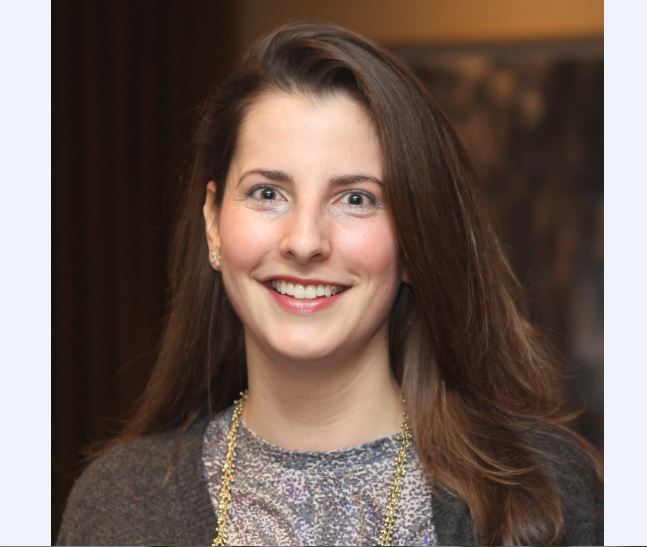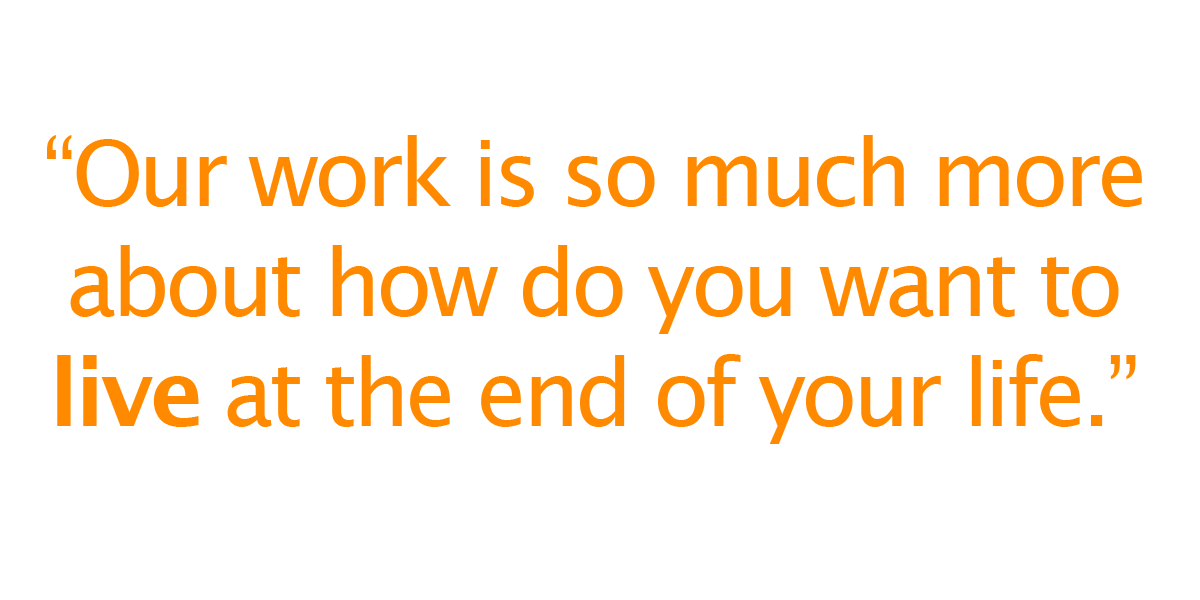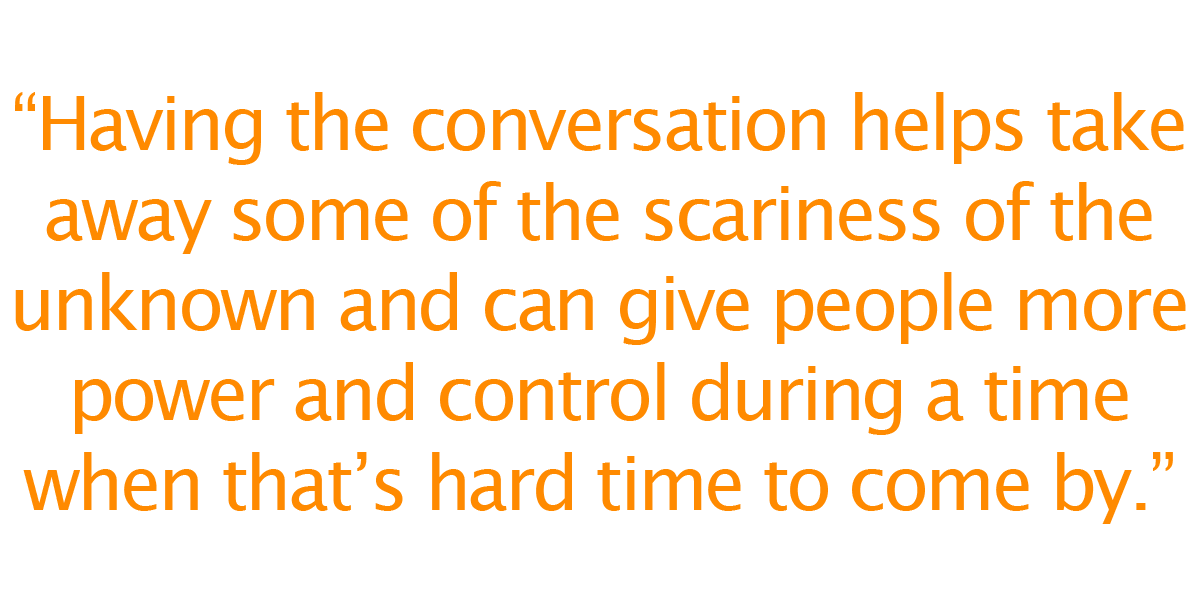For this week’s Talking Matters’ blog post we bring you a Q & A featuring our passionate National Field Manager Kate DeBartolo. She talks about her work with The Conversation Project, our new Community Resource Center and why she loves this work.
How long have you been working with The Conversation Project?
Three years! I had been doing field work with Institute for Healthcare Improvement for six years so it was a natural transition to also share my time and knowledge with The Conversation Project. I joined the team in 2013 with the goal to help individuals and community groups tailor our resources and bring this work and mission to their area.
What are your primary responsibilities?
My role is to help build a field structure to support the many communities bringing the conversation to people where they work, live, and pray. I engage with community leaders and organizations to help them understand how they can bring The Conversation Project to their regions. Primarily, I do this by developing our monthly community calls and our speaker trainings. We’re such a small team; we can’t be the ones who give every presentation so we’re happy to train others to do it or give them the resources that will better equip them to bring this work to their area. I’m also often developing proposals for additional community work and helping to find funders. Last year, my biggest project was developing the Community Resource Center, an online center to collect, curate, and synthesize various tools and resources created by community groups around the country.
Tell us more about the Community Resource Center. How did it start? What are your future hopes?
Over the years, we’ve been working with hundreds of individuals and organizations to bring The Conversation Project to their communities, and we often come across many different tools and resources. Every time we saw a helpful resource, we thought, other people should know about this and there should be a central place for others to find this information!
I did outreach to hundreds of different community groups around the country to see if they would be willing to share some of the tools they created. We often use an internal tagline – “steal shamelessly and share widely.” That was kind of the idea here, always giving credit to the people who created it. People were very generous with their time and resources and also helped create tools when we noticed there was a hole that should be filled.
People come to this topic in a variety of different ways in their community – either with a book club meeting or a movie screening. Others need help to organize an HR onboarding event. All of these ideas and more can be found in our Community Resource Center where people can download useful tools and customize them to suit their community. There’s no one way to approach this work. We’ve also created a Community Getting Started Guide to walk an individual or organization through a series of questions to help plan efforts in their region.
What makes you so passionate about this issue?
The fact that it applies to everyone! The work of The Conversation Project is nonmedical and easily approachable. You don’t need a medical or legal background to use our tools and resources. This is something that lay people can do; it’s universal, and it’s something that can make such a big difference in people’s lives. Sometimes my friends ask, “Oh my gosh. You just deal with death all the day? Isn’t that depressing or overwhelming?” And for me our work is less about death and so much more about how you want to live at the end of your life.
What has been your most rewarding experience while working on The Conversation Project?
I love being on the road and travelling for work. I love learning what different regions are doing. The people I meet are smart and interesting and thoughtful and creative. It’s a constant reminder to me that my job is not to be an expert, but more of a guide on the side. I love that I never hear the same thing every day. Just recently, I had a call about how to involve correctional facilities in this work, and then after that I spoke with group working with their local archdiocese, and then another call with an employer considering how to introduce this topic to his employees – it’s ever changing.
What do you think are the benefits of having the conversation?
There are so many emotional, physical, spiritual, medical benefits to all the people involved. Knowing that you’re doing the right thing for a loved one or a patient is so important during such a hard time; it’s a gift for everyone involved. Having the conversation helps take away some of the scariness of the unknown and can give people more power and control during a time when that’s hard to come by.
Comments are closed.



